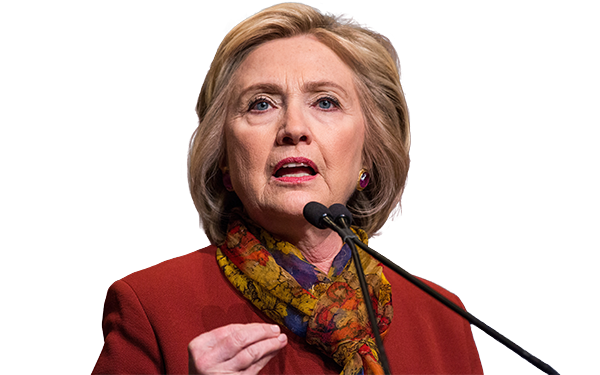Clinton Doubles Down on Obama’s K-12 Agenda, Commits $2 Billion to Fight School-to-Prison Pipeline

Hillary Clinton, in her first substantive comments on K-12 education during the 2016 campaign, said Tuesday that she would work to end the school-to-prison pipeline as part of a larger plan to combat systemic racism.
Clinton’s comments also touched on empowering black entrepreneurs, reforming the criminal justice system more broadly and creating jobs for black youth. The proposed policies in many ways seek to advance on initiatives from the Obama administration. Clinton is trying to tie herself to President Obama, who is still very popular with African-Americans, as she works to shore up support from black voters in the Democratic primaries.
Next up on Feb. 27 is South Carolina where 55 percent of Democratic primary voters were black, according to 2008 exit polls. (The 74 video: Inside South Carolina’s Campaign to Empower Students with Technology #EDlection2016)
“The bottom line is this: We need to be sending our kids to college. We need a cradle-to-college pipeline, not sending them into court and into prison,” she said at a speech in Harlem.
Her marquee proposal is to end the school-to-prison pipeline by putting $2 billion into schools to reform overly punitive school discipline policies and support guidance counselors, school psychologists and social workers.
“Instead of just labeling kids problem students, they can actually help kids with their problems, and keep them in school,” she said.
The school-to-prison pipeline refers to harsh discipline policies involving suspension and expulsion that disproportionately affect black students, often driving them into the criminal justice system. (The 74 reports on how the presence of poorly trained police officers in schools is especially damaging to kids of color and the disabled)
Clinton’s speech comes on the heels of Acting Education Secretary John King’s call to see the school-to-prison pipeline as part of a broader problem of systemic racism. It also follows a more expansive proposal by then-Secretary Arne Duncan, in his final months in office, to reform the sentences for nonviolent offenders and funnel that money back into raises for teachers in the lowest-income neighborhoods.
Clinton also said she would encourage the Education Department’s Office of Civil Rights to intervene in states and schools that don’t change their policies.
“This is not just an education issue, this is a civil rights issue and we cannot ignore it any longer,” she said.
The Office of Civil Rights under the Obama administration has already begun this process, issuing guidance in conjunction with the Justice Department in January 2014 and entering into agreements with districts to reform their discipline practices.
Clinton also touched on what she called the “dangerous slide toward re-segregation in our schools,” an issue Duncan recently told The 74 was not one his administration adequately addressed.
“Our schools are now more segregated than they were in 1968. That is appalling and we’ve got to fix it,” she said.
Finally, Clinton pledged “special support” for historically black colleges and universities.
“The HBCUs have produced some of the finest leaders in our country. And it’s not just who they graduated in the past, it’s the work they’re still doing today, often against great odds,” she said.
That line was no throwaway: leaders of historically black schools have been at odds with the Obama administration in recent years. Leaders of the schools said administration policies, like limiting particular loan programs, or the proposed college ratings system, could unfairly hurt HBCUs at a time when they’re already facing financial instability. They also say they weren’t consulted on major administration initiatives, like Obama’s free community college proposal.
WATCH: In South Carolina, a plan to flood classrooms with technology


Get stories like these delivered straight to your inbox. Sign up for The 74 Newsletter

;)
